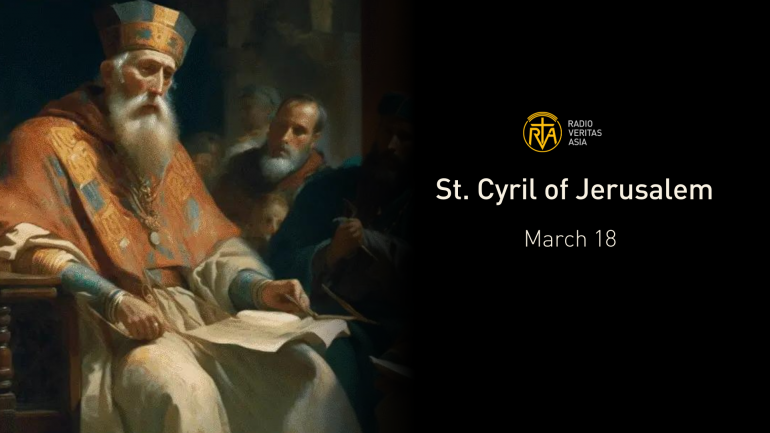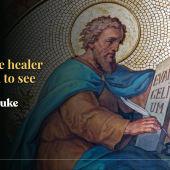St. Cyril of Jerusalem

The Church honors Saint Cyril of Jerusalem (315–386) on March 18. In 1883, the church declared him a doctor of the church. He was a bishop of Jerusalem who promoted the growth of the "holy city" as a hub for Christian travel.
The Arian heresy, which rejected Christ's divinity and nearly brought Christianity to an end in the fourth century, may seem like a worse threat than the problems the Church is currently facing.
Saint Jerome accused Cyril of Arianism, but his contemporaries ultimately cleared him, and in 1822, they named him a Doctor of the Church.
Baptized and raised in Jerusalem, he received a strong education, particularly in the Scriptures.
The Jerusalem bishop consecrated him as a priest, assigning him to baptize those awaiting baptism during Lent and the newly baptized during Easter.
His sermons are still useful for understanding the church's liturgy and theology in the middle of the 4th century.
Regarding the events leading up to his appointment as Jerusalem's bishop, accounts differ. The province's bishops have undoubtedly legitimately consecrated him.
One could have assumed that Acacius, an Arian, would be the next to cooperate. Soon, there was hostility between Cyril and Acacius, the competing adjacent see of Caesarea's bishop.
A council summoned Cyril and accused him of betraying the church and selling assets to benefit the underprivileged. But there was also probably a theological divide at play.
He was found guilty, expelled from Jerusalem, and eventually found innocent—though not before having some ties to and support from Semi-Arians.
He experienced exile twice during his episcopate. When he eventually returned, Jerusalem was rife with crime and torn apart by division, heresy, and strife. Even the sentinel, Saint Gregory of Nyssa, gave up in despair.
Both of them were present at the Council of Constantinople in 381, which proclaimed the Nicene Creed in its revised version. Cyril agreed with the consubstantial idea that Christ and the Father share the same nature or substance. While some said it was a repentant act, the Council's bishops commended him for standing up for orthodoxy against the Arians.
Cyril can be considered one of those people Athanasius referred to as "brothers, who mean what we mean and differ only about the word consubstantial," notwithstanding his lack of amity with the most notable orthodoxy defender against the Arians.
A compilation of 23 catechetical lectures, or catecheses, given to applicants for baptism is Cyril's principal extant work. Cyril delivered the final five catechetical lectures, or catecheses, to the newly baptized during the week following Easter, while the first eighteen followed the Jerusalem baptismal creed throughout Lent.
History rudely shocks those who believe that saints' lives are straightforward, peaceful, and devoid of controversy. However, saints—indeed, all Christians—should not be surprised that they will face the same challenges as their master, Jesus.
It is a never-ending and intricate quest to define truth, and good people have paid a heavy price for error and debate. Political, emotional, and intellectual obstacles may temporarily slow down individuals like Cyril. However, when seen as a whole, their lives are monuments to bravery and honesty.
Radio Veritas Asia (RVA), a media platform of the Catholic Church, aims to share Christ. RVA started in 1969 as a continental Catholic radio station to serve Asian countries in their respective local language, thus earning the tag “the Voice of Asian Christianity.” Responding to the emerging context, RVA embraced media platforms to connect with the global Asian audience via its 21 language websites and various social media platforms.












